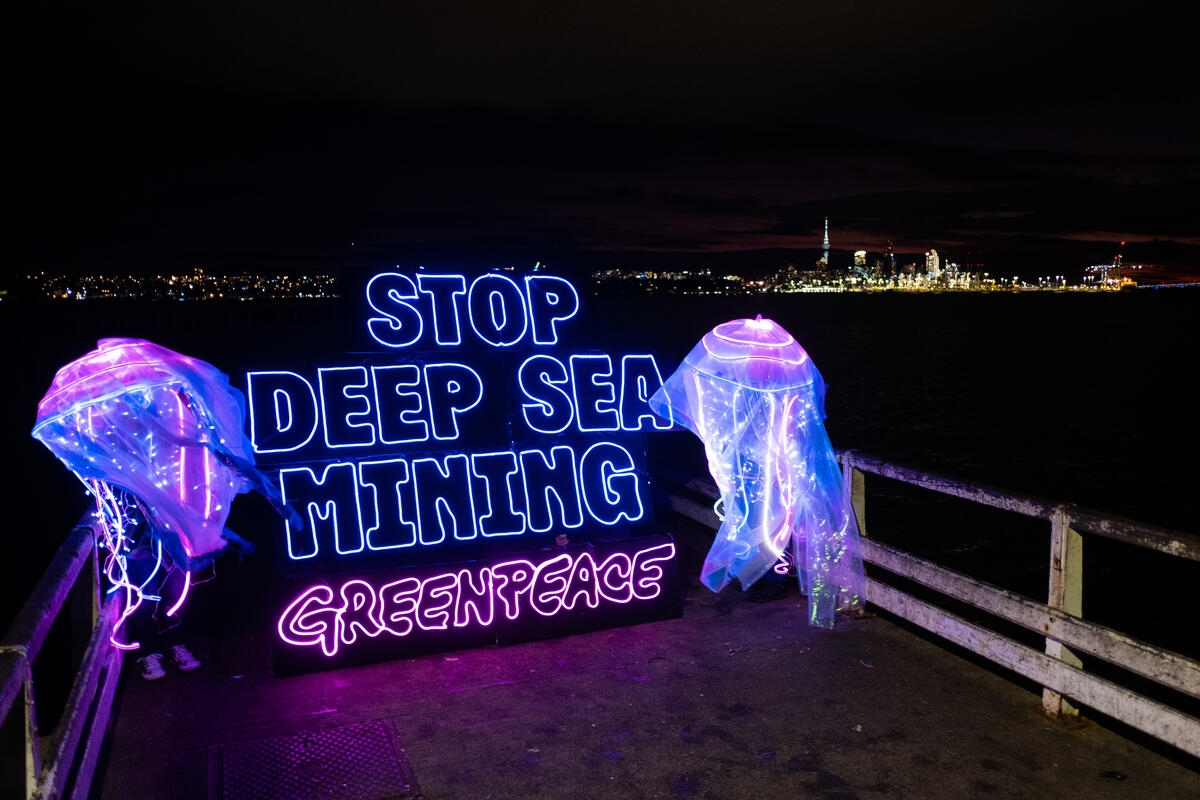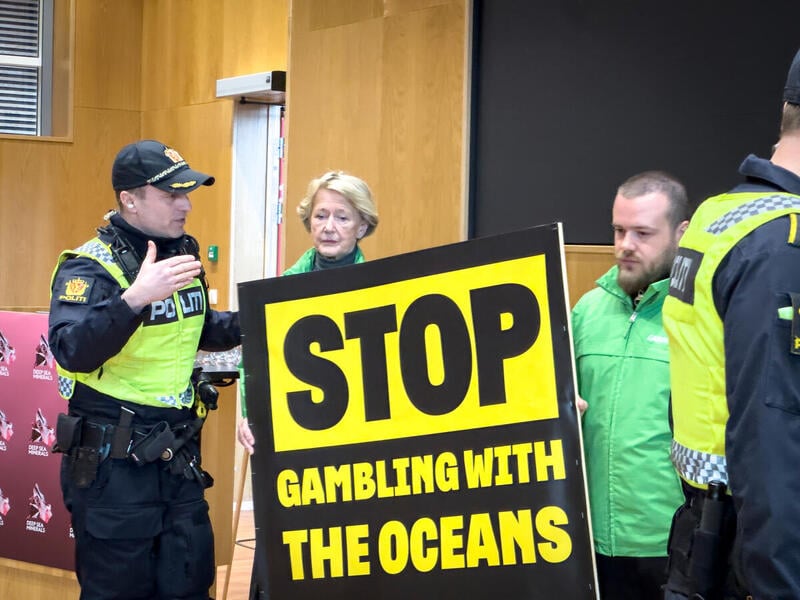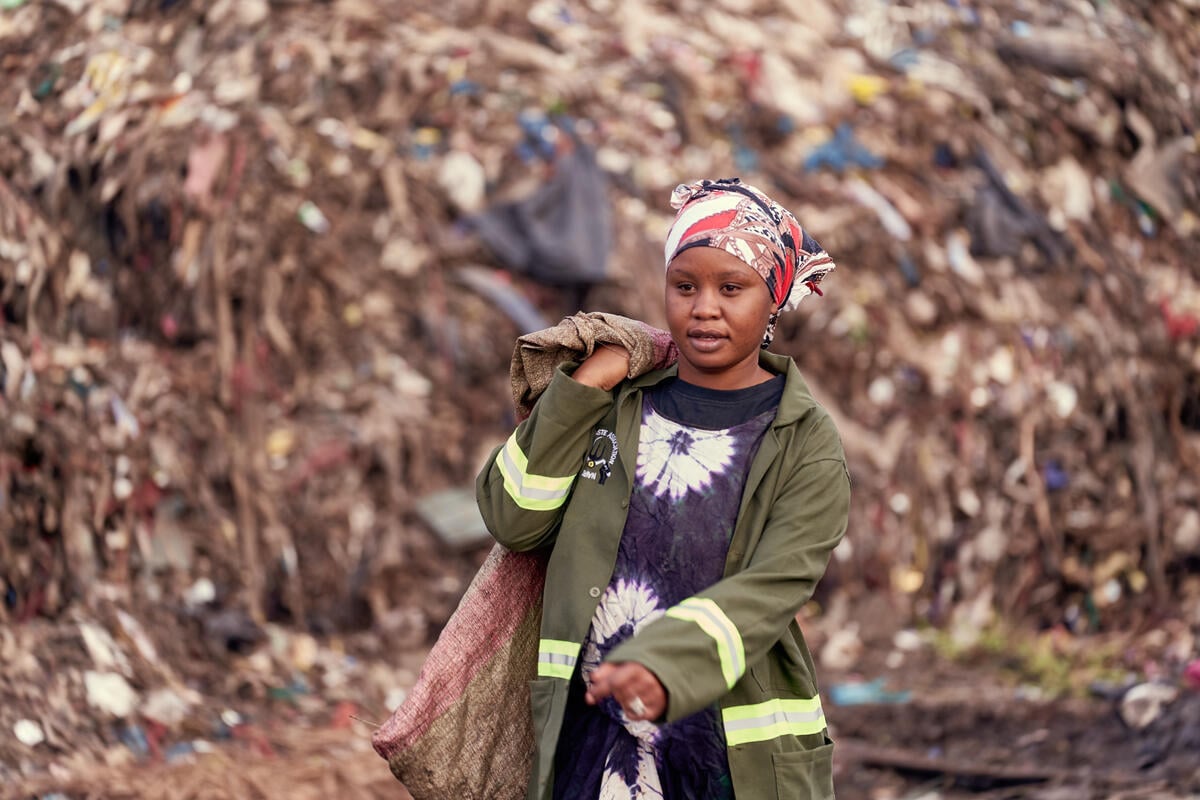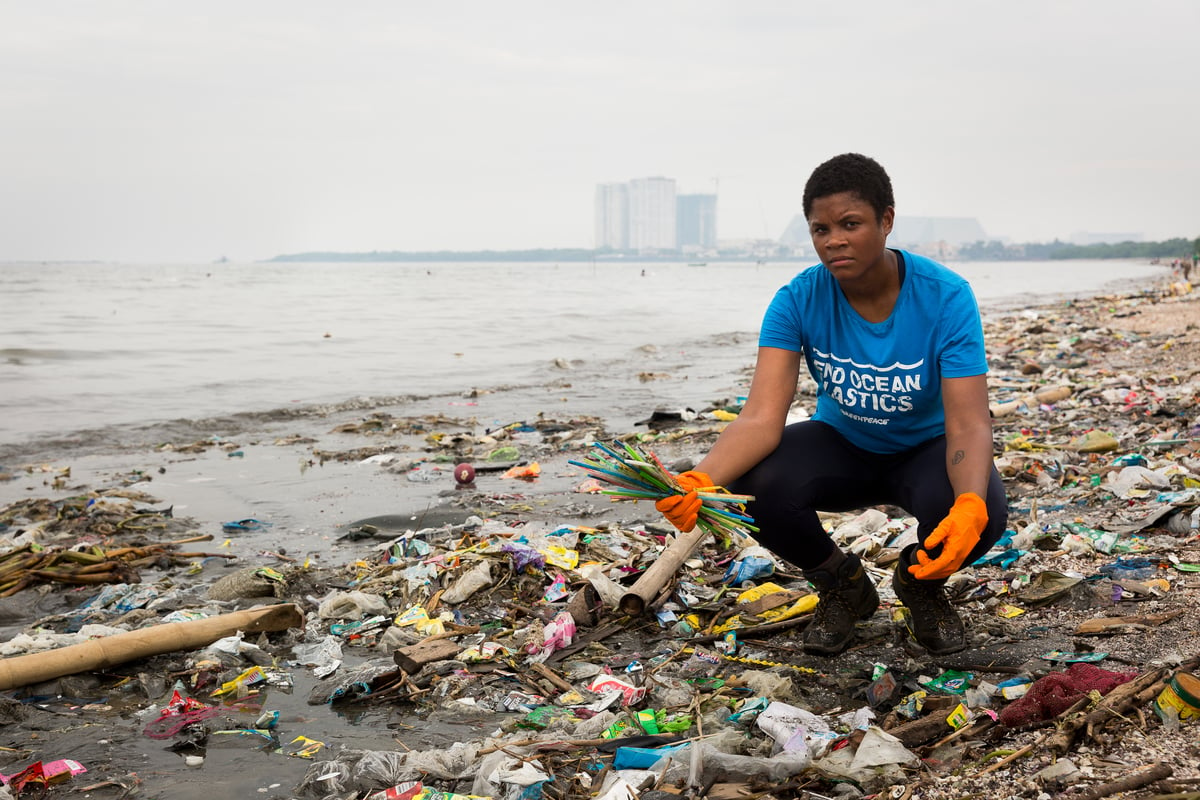
Greenpeace UK Oceans campaigner Tisha Brown holds up plastic straws collected during a beach cleanup activity on Freedom Island, Philippines. A brand audit of the waste collected revealed major multinational brands Unilever, Nestlé, Procter & Gamble, and Colgate-Palmolive to be among the top polluters.
Single-use plastics are filling up our oceans and choking marine life. Birds, fish, and whales have been found dead, their insides filled with straws, plastic bags, and wrappers. Plastic has been found in drinking water all around the world, and it’s finding its way into our food.
Corporations are not doing enough to stop this growing crisis.
Over the past year, many big brands — including Coca-Cola, McDonald’s, Starbucks, Procter & Gamble, Nestle, PepsiCo and Unilever — have released statements or plans to address the massive plastic pollution crisis they helped create. But their plans are not nearly ambitious enough. They generally focus on recycling more, or on increasing the recycling content of their plastic packaging.
But more than 90% of plastic is not recycled, and plastic production is still increasing. To truly make a difference on plastic pollution, corporations must significantly and immediately reduce their plastic production.
But while corporations stall, everyday people are tackling the plastic pollution problem head on.
Despite the lack of significant action by the world’s largest economies and corporations, it’s people like you who are leading the charge toward getting rid of throwaway plastics.
All over the world, people are stepping forward to lobby businesses and governments for reductions and bans on throwaway plastics. A group of citizens from Veracruz, Mexico effectively lobbied for a ban on plastic bags and straws in their state. Ullapool, a Scottish village, went plastic-free after school children banded together to speak with business owners and staff about the issue. Nearly 100 cafes in Greece have agreed to give discounts to customers who bring their own reusable cups, thanks to the efforts of a volunteer-led campaign there.
And there’s much more to come. With your help, we can do even more to hold corporations accountable for the plastic pollution they’re creating.
Here’s what you can do to help create a plastic-free future.
- Add a Break Free From Plastic brand audit to your beach or community cleanup! Join the global movement working to identify the corporations whose plastic waste is polluting our world.
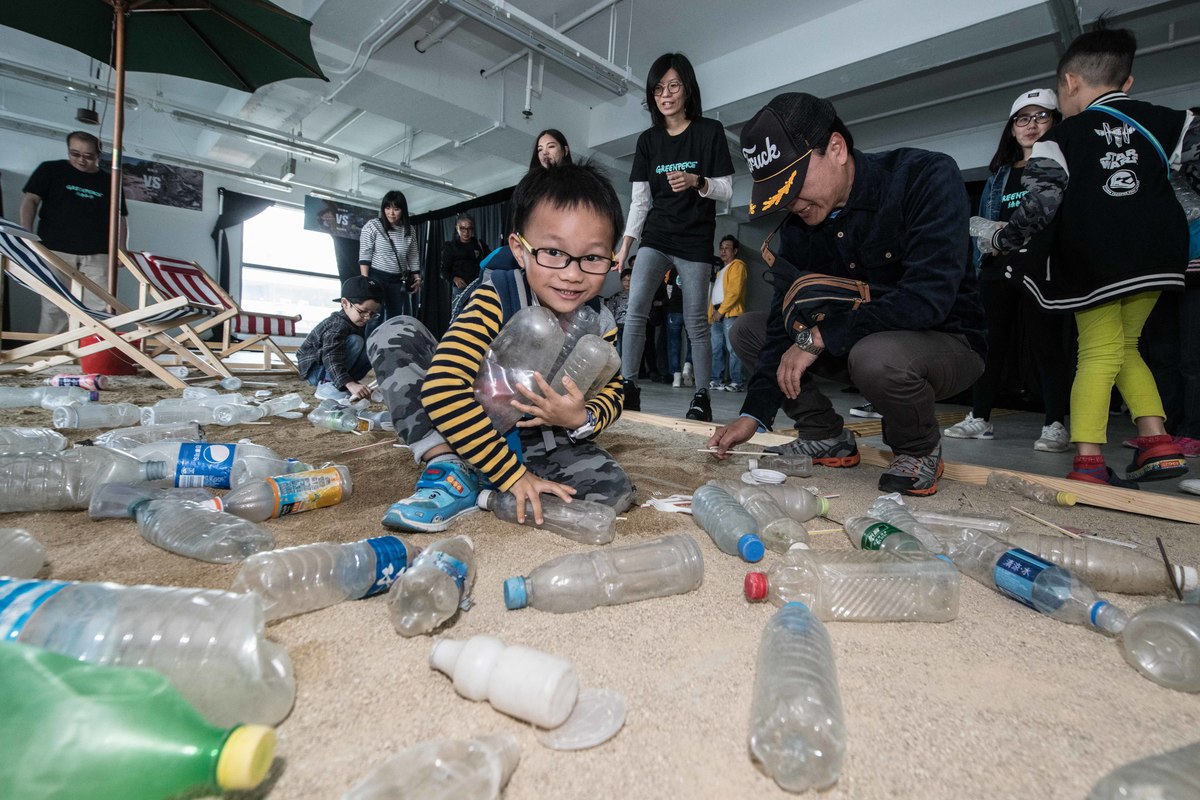
Volunteers come on board the Greenpeace Rainbow Warrior ship in Hong Kong during the “Plastic-Free Now” ship tour. The tour encouraged fast food chains in Hong Kong to phase out single-use plastic, including cutlery, packaging, styrofoam and plastic bags.
- Call out the brands for their polluting packaging on social media! Simply take a photo of the next piece of branded plastic waste you see outside near your house, school, beach, nature trail, or other places. Post the photo to social media, tag the brand, and use the hashtag #IsThisYours? to let these companies know we’re calling them out for polluting the planet with throwaway plastic. Then challenge your friends to do the same!
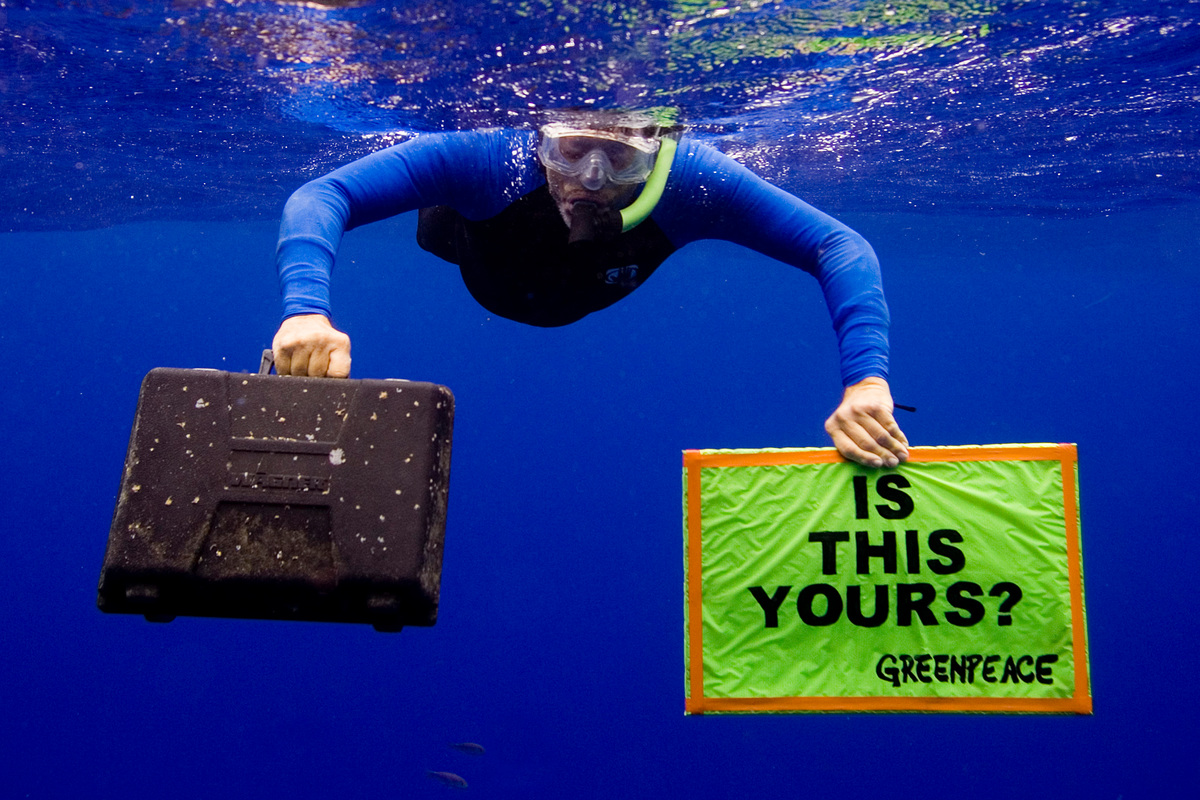
A Greenpeace activist displays an empty ‘Wagner’ toolbox found awash in the high seas of the Central North Pacific Ocean.
- Download the Million Acts of Blue toolkit to find many more ways to help. You can organize your own campaign to convince your local restaurant or supermarket to phase out wasteful plastic, send a letter to the editor of your local news outlet to bring attention to the issue, or start a community group and invite your friends to join the movement too!
- Join the Plastic-Free Future Facebook group to share ideas, get the latest news, and learn from ocean protectors around the world. This growing global community is the place to go for all your questions about plastic pollution and how to stop it!
We can no longer sustain a future that sees the equivalent of a truckload of plastic entering our oceans every minute of every single day. Real change is going to require phasing out single-use plastics, for our environment and for people around the world who depend on clean water. Until corporations lead toward the future we want to see, it’s people like you who will continue building it from the ground up.

